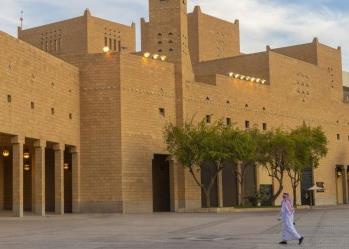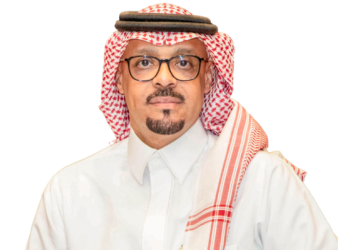
For Jung, it is the small things that matter. As we catch the lift up to the executive floor of Samsung's headquarters in Seoul, South Korea, a robotic-sounding voice announces in English that the door is closing.
"We have changed the official language in the lift from Korean," says Jung. "A small detail, but an important one for an international company such as ours."
| Career History | |
| 2003 | Appointed president and chief executive officer of Samsung Engineering |
| 1998 | Named as executive vice-president and chief financial officer of Samsung SDI |
| 1994 | Promoted to director of the finance and accounting division at Samsung Corporation |
| 1982 | Management positions at Samsung Corporation |
| 1976 | Accountant at Samsung Fire Insurance Company |
| 1973 | Receives bachelor of business administration from Dong-Kuk University |
Samsung encourages its staff to learn a second language as part of its push into overseas markets. For most, it is a matter of brushing up their English, but with an eye on its expansion into North African markets, French is also taught at twice-weekly night classes.
Such attention to detail is being rewarded. Shortly after our interview in early May, Samsung scooped its first ever contract in Algeria - where the business language is French - and its largest ever overseas order.
Several other South Korean contracting companies had been attracted by the $1.2bn-plus deal to modernise Algeria's biggest refinery at Skikda, but several were dissuaded by the need to communicate in French.
"The Skikda contract is a great opportunity for us to showcase our extensive project experience in the North African market," says Jung.
Winning the contract is also an important stepping stone for the company's ambitions in the region. "Samsung Engineering has built its Middle East project track record in countries such as Saudi Arabia, the UAE and Bahrain, but we believe we can expand our geographical markets," says Jung. "In terms of North Africa, we are targeting resource-abundant countries such as Algeria and Libya."
Jung has been instrumental in prioritising the company's push into the Middle East since moving across from Samsung SDI, the conglomerate's plasma display screen division, in 2003 to take the helm at Samsung Engineering.Prior to his appointment, Samsung Engineering's international revenues came mainly from countries far closer to home, including India, Thailand, Malaysia and Indonesia.
The company was largely missing in the Middle East; a glaring anomaly given that many of its local competitors had been making handsome profits there for years.
South Korean contractors first tapped into the Middle East market in the 1970s, when they focused on heavy civil engineering. Several returned to their home market to focus on opportunities created by the Asian infrastructure boom, following the oil slump that hit the Middle East region in the early 1980s. It was another slump, in the form of the 1997-98 Asian monetary crisis, that forced South Korean contractors to again ponder the opportunities available to them in international markets. The Middle East, with its enormous oil and gas reserves and huge infrastructure requirements, was an obvious choice.
With the Middle East providing about 80 per cent of South Korea's energy requirements, it also made political sense for Seoul to encourage business ties with the region.
Track record
At first, South Korean engineering, procurement and construction (EPC) contractors were widely seen as cheap but low quality, but Jung says they have now successfully discarded that reputation. "I do not think there is a [South Korean] EPC contractor that only wants a slim margin just to win a project," says Jung. "They want to produce a plant fast, on schedule, safely and ensure good quality as well."
Samsung itself started slowly in the region, winning its first contracts in 1998, for gas processing and polyethylene plants in Egypt. Samsung opened a Dubai office in 1998 and a Saudi base one year later. It then won a deal to construct an integrated polypropylene plant at Jubail for Saudi Polyolefins Company in July 2001, which paved the way for a string of construction deals with local industry heavyweights Saudi Aramco, Saudi Arabian Mining Company (Maaden) and Saudi Basic Industries Corporation (Sabic).
The Middle East now accounts for nearly 40 per cent of the company's global revenues, which were $2.9bn in 2008.
Jung says the company's competitive advantage can be found in its ability to organise partners, suppliers and sub-contractors into a strong unit. "It is a very long chain of integration," he says. "You have clients, EPC contractors, subcontractors and suppliers. In addition, there are discrepancies as to the workload the suppliers have. Some have a small workload, while others are too busy to take work. How well we can organise all these players in a cohesive manner and complete quality projects that the clients want on schedule and cost effectively determines the competitive advantage."
In the current market, no contractor in the region can afford to be complacent. Governments are laying down new rules in an effort to develop their domestic energy industries, so they can compete more effectively on the world stage.
Buyers' market
Contractors must now adhere to strict local joint venture rules, adding an extra layer of responsibility, and cost, to the process of bidding for megaprojects. Jung says this requires a change of mindset. "It is true that Samsung Engineering once believed that such a requirement from local clients is a challenge, since training takes a lot of time for workers with little to no experience in the field," he says.
"But I personally believe it is a very good opportunity, despite there being a few obstacles. We do not just enter and exit a country from project to project. We hope to deliver client satisfaction, even if that entails extra costs and man-hours."
Jung says that Samsung will consider setting up local joint ventures in countries around the region that offer long-term business opportunities, although markets such as Saudi Arabia, where the company has a strong base, are clearly a priority.
Samsung is just one of dozens of companies that are having to continually tweak their strategies in the region. But even when talk turns to the emergence of Chinese contractors as a major threat to the market dominance of South Korea, Jung talks of it as an opportunity. "We had a big meeting with some very notable Chinese companies about two years ago," he says. "One method of adapting to Chinese contractors is by creating collaborations or even using Chinese contractors as subcontractors. While there was no talk of a concrete collaboration, there is a possibility of collaborating in the future."
With strong resources and growing political clout, Jung recognises that Chinese contractors could eventually overtake the South Koreans as a force in the Middle East. He says they could follow a similar low-cost path to that taken by South Korean contractors a decade ago. "Chinese companies can offer a low cost and we do know Chinese contractors will eventually become very active in the Middle East market," he says.
One advantage South Korean companies such as Samsung are eager to emphasise is their willingness to take on and manage unidentified risks on major contracts. Many Western contractors are reluctant to take on risky lump-sum turnkey contracts, but Jung shrugs his shoulders when asked what type of contracts the company favours. "We do not have a preference for either a cost-reimbursable or lump-sum turnkey contract scheme," he says. "We just decide the contract scheme in accordance with what clients ask from us.
"Lump-sum turnkey contracts require very good preparation, management and integration, including a lot of earlier preparation. The risk is heavier on the contractor side."
With so many projects delayed around the region, and oil companies desperate to negotiate cheaper construction and development deals, companies such as Samsung know they need to retain a degree of flexibility.
"Suppliers are realising that the market has shifted," he says. "There were many EPC contractors to choose from during the sellers' market period. Now it is definitely a buyers' market and they [suppliers] are looking for a very competitive EPC contractor that could give them a steady flow of work."
While the credit crunch has put a dent in other companies' growth projections, Jung is confident about an economic recovery in 2010. "I think that by the end of this year the global economy will start to rebound, and that will drive up the downstream markets," he says. "Even if Middle East producers cannot keep the margins they want, I believe they will keep the investment, despite the current difficulties in the global economy."
To build on its current position in the region, Samsung is also eager to diversify into new business sectors including rail, water, power and steel. "It makes sense that they [Middle East countries] will be interested in building up these industries to back up their future growth," says Jung. "We are also interested in working in these areas."
If Jung is able to continue Samsung's growth in the Middle East, which it has enjoyed since he took the helm in 2003, it will go a long way towards ensuring the company as a whole emerges relatively unscathed from the financial downturn. "When Korean contractors went global and competed against leading Western and Japanese companies, I am sure they did not think of us as competitors because we lacked the technology and management skills," he says. "Now it has changed. We are on a par with them and are on track to expand further in the Middle East."
You might also like...

Iraq signs deal to develop the Akkas gas field
25 April 2024

Emaar appoints beachfront project contractor
25 April 2024

Acwa Power signs $356m Barka extension
25 April 2024

AD Ports secures Angola port concession agreement
25 April 2024
A MEED Subscription...
Subscribe or upgrade your current MEED.com package to support your strategic planning with the MENA region’s best source of business information. Proceed to our online shop below to find out more about the features in each package.








